North Bank, Iraq’s Largest Bank (Private), is in good position for continued high growth
Kurdistan Sector Analysis
North Bank – Iraq’s Largest Bank (Private) — is in good position for continued high growth
For Nozad Dawood Fattah Al-Jaff, chairman of North Bank, the goal is to be not only the largest bank in Iraq, but to be recognized as a strong regional player as well.
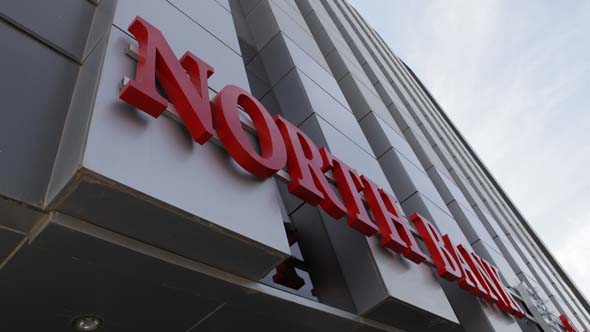
North Bank – Iraq’s Largest Bank (Private) — is in good position for continued high growth
By TK Maloy
BAGHDAD — Iraq’s North Bank — the largest bank in Iraq (Private) — believes in active involvement in the market, and statics show the bank as the largest in the Republic in giving loans and three times the size of its nearest competitor in terms of capitalization.
Iraq Business News praised North Bank in a recent article “as one of Iraq’s best capitalized, being one of only three to have reached the CBI’s IQD 250 billion share capital target. It has also been one of the top performing names in the Iraqi market. Adjusted for capital increases, the shares have risen by over 250 percent since 2009.”
“What ‘s not to like?” Principal at Quantrarian Capital Management, Mark DeWeaver asked rhetorically.
The Sansar report added that rising credit penetration is likely to further fuel banking sector growth. “Buoyed by strong economic growth and rising credit penetration, the five largest private Iraqi banks grew aggregate net income by 207 percent between 2010-2012.
Nozad Dawood Fattah Al Jaff, Chairman of North Bank, pointed out during an interview with Marcopolis the new state of the banking market and the regional room for growth. “This market is very new and it is an open market. The size of the economy in Iraq is so big that there is room for another hundred banks to enter the market.”
He added, “Competition comes if you actually get involved in the daily market business, which is the policy that North Bank is following. North Bank is the largest bank in Iraq in terms of giving loans and we surpass the second closest bank in this area by at least three times.”
Al Jaff asserted, “We welcome any other banks to do business in this area.” He noted “Every bank has its own specialty and a new variety of expertise would definitely help this important sector to grow, be it in Iraq or particularly in Kurdistan.” 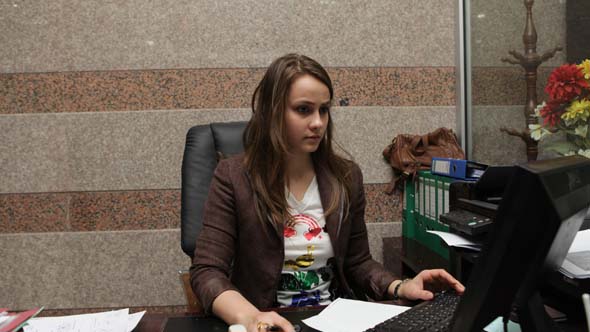
According to Singapore-based Sansar Capital, the Iraqi banking sector ” is poised for significant earnings and asset growth over the next decade driven by a strong macro environment, increasing credit penetration and an improving security situation.” Sansar reported that for 2013 the IMF was expecting Iraqi GDP to hit a nine percent growth, after posting a strong 8.4 percent GDP for 2012.
Also, the report noted that the International Energy Administration in its “World Energy Outlook” said that Iraq is expected to contribute 45 percent “of the global incremental oil supply over this decade. Based on this, the IEA central scenario forecast predicts Iraq GDP to grow 151 percent between 2011 to 2020.
The Sansar report added that rising credit penetration is likely to further fuel banking sector growth. “Buoyed by strong economic growth and rising credit penetration, the five largest private Iraqi banks grew aggregate net income by 207 percent between 2010-2012.
This same report, while noting that North Bank has delivered strong profit and earnings-per-share growth over the last several years, went on to say: “We are concerned, however, about the future profitability of the bank given stricter Central Bank of Iraq regulations on foreign-exchange activities. We believe the bank needs to re-focus its attention to the following key challenges in order to position itself for long-term growth:”
• Focus on quality deposits – Sansar asserts that North Bank needs to focus on creating quality deposits and not quantity of deposits. With a 7 percent interest rate paid on saving deposits, the bank has the highest cost of funding amongst the five largest private Iraqi banks, the report said.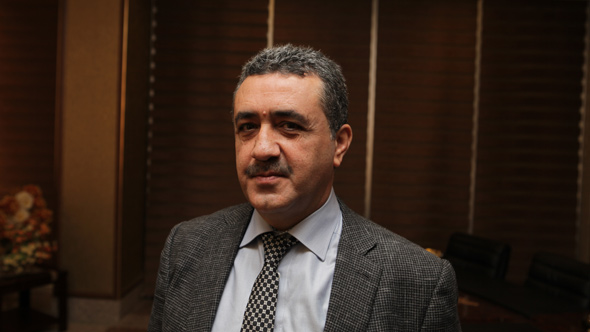
• Focus on quality lending – similar to the story of deposits, the Sansar report “believe the bank needs to focus on providing quality loans backed by quality collateral; we do not view growth via over-draft facilities as a way to sustainable business development.”
• Improve transparency – Sansar found little disclosure in North Bank financial statements around collateral value against overdraft facilities. Also, Sansar said it could not find a detailed breakdown of its loan provisioning schedule as is provided by other banks. “We believe investors will need more information to make a fully informed decision on the bank.”
Al Jaff, spoke of the critique of the Sansar report, saying the following: ”Well it was mentioned to us and we looked at it seriously. We looked into those criticisms. However, we are now at 2013 and nothing has changed or happened in Iraq so I think that those assumptions were incorrect. Even if those assumptions for any reason were to be correct in the near future, we are just providing services to our clients and it shows how much money is exchanging in Iraq today. One important thing to note is that the Iraqi private market is responsible for more than 80 percent of activities in Iraq.”
”If I’m not mistaken the government contributes four to five billion dollars a year from the Trade Ministry, the rest of the activity is done by the private sector. In this regard, this type of work will continue until we have access to international banking systems that would free us from the Central Bank that controls those revenues,” Al Jaff added. ” The Central Bank watches these revenues carefully, looking at how, where and why these monies are transferred. Because all of these transfers happened suddenly in 2012, people thought that by implementing tougher regulations they would shrink or stop or vanish…. I’m sure each year we will grow more and find more acceptable ways rather than just going to the Central Bank and asking them to transfer these monies for us. I think that the assumptions that were made by some of our critics are down to the fact that they do’ really understand how people live and work inside Iraq. ”
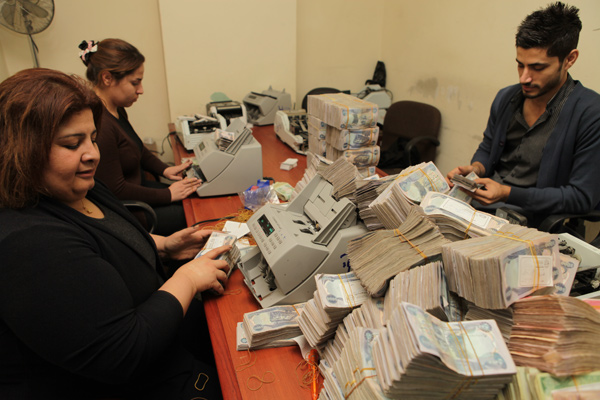
Regarding Sansar claims of significant amount of loan losses from overdraft facilities, Al Jaff said: ”We have had last year and in previous years some loans which were not paid back. Those never amounted to a huge number. They were single digits of millions of dollars at the most. We still pursue those loans but it has no real effect because we lost a few million dollars because of bad drafts and loans but we had $28 billion dollars in terms of our provisions. Our provisions for those bad loans were much greater than what we paid for those loans.”
Al Jaff elaborated, saying: ”Each year we have contributed some percentage of our profits to make sure that we are on the right side. When people read the reports, they will see that last year in 2012 we had more than 28 billion dinars in provisions for bad loans. Essentially if I have 700 or 800 billion dinars in loans it is natural to lose three or four billion in those loans. However, each year when I make a profit I add to my provisions whether I need to or not, and this year we shall do the same. We will allocate some of our profits to provisions to make sure that we are ready for a rainy day.”
Lastly, Al Jaff looked at the issue of the level of off- balance sheet leverage, noting: ”We are often criticised by the market and the government who say that the private banks are not greatly involved in helping daily businesses in Iraq. We are proud to say that we have the highest amount of leverages that has helped a lot of people to manage their businesses in Iraq. All of these loans are very well and I repeat very well; they are backed up by the assets that we have from the clients that we have received.’
He added: ”We chose the clients that come to us. We accept the criticism that we have high concentrations but these clients are big clients. When I make a $25 million dollar guarantee for a company called Asiacell, everyone knows how big Asiacell is and so $25 million is not such a huge risk. Other companies that are doing the infrastructural programs like the water treatment or refinery projects are big companies and we know the clients and their assets are even greater than ours. So the risks we take with them are backed up by the assets that these companies have. Luckily we have been fortunate enough to have no bad experiences with these people. ”
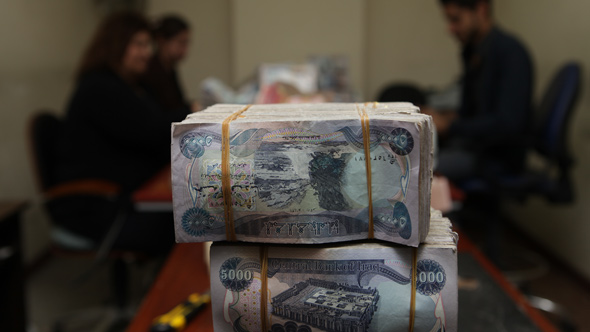
Based in Baghdad and Iraqi Kurdistan, North Bank was founded by a private group of investors and business persons in 2004 shortly after the fall of the Saddam Hussein’s regime when it was issued a banking license by the Central Bank of Iraq. It is now a publicly-listed company (BNOR) traded on the Iraq ES (exchange).
Currently, North Bank has 18 branches across Iraq, located in Baghdad, Basra, Najaf, Karbala, Maysan, Nasirya ,Kut, Hilla ,Ramadi, Mosul, Kirkuk, Erbil, Duhok and Suleymaniyah and planning to open new branches in others governorates.